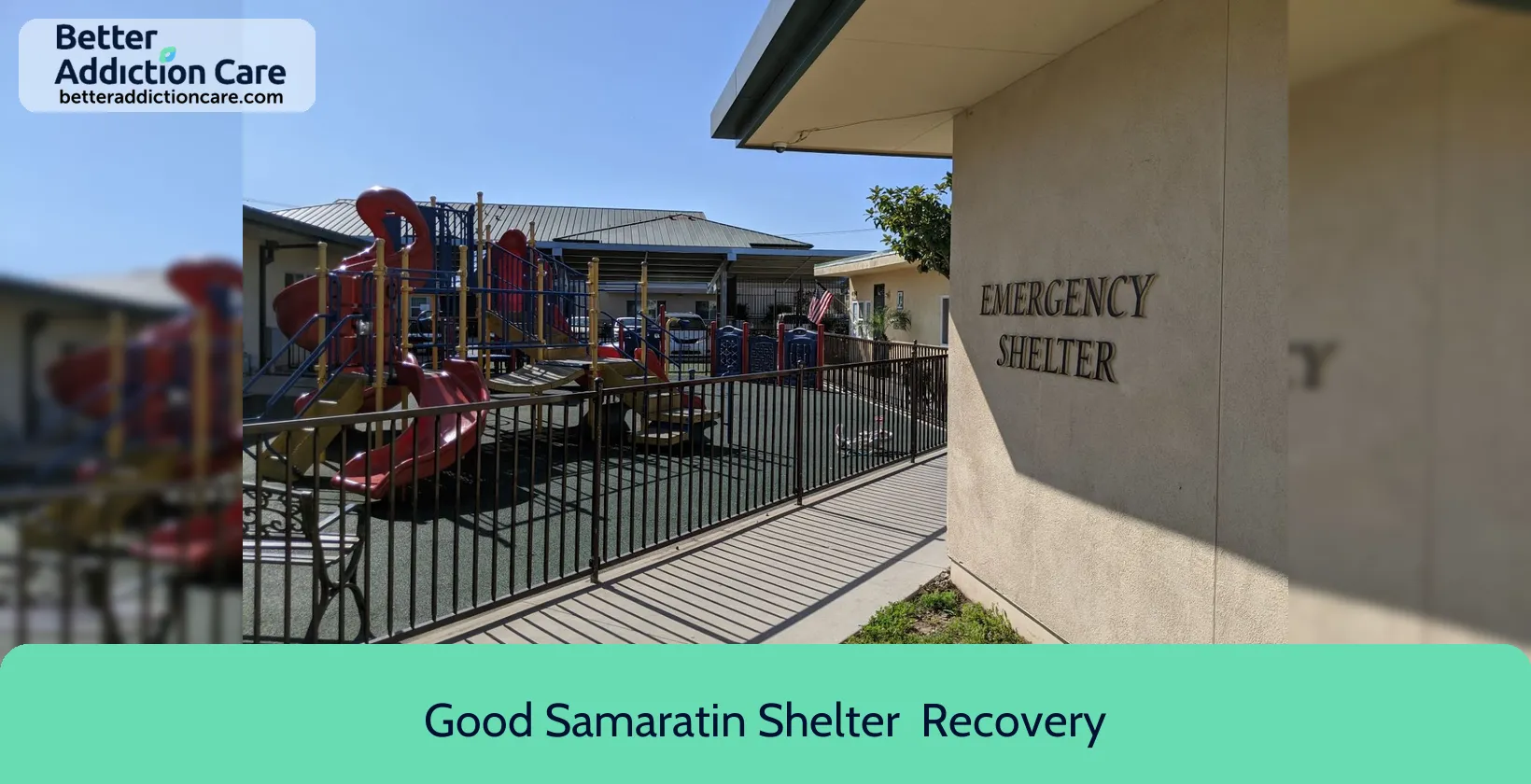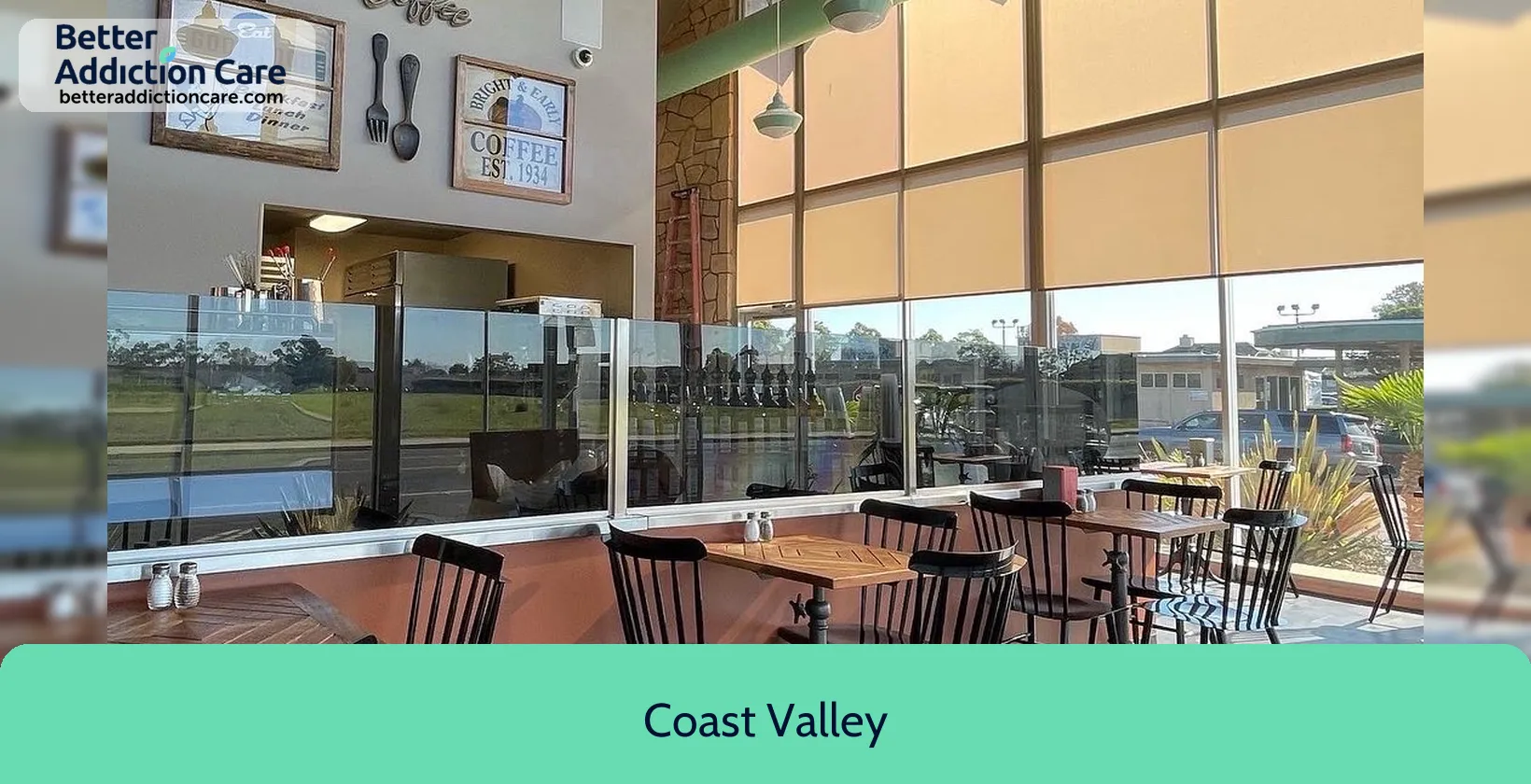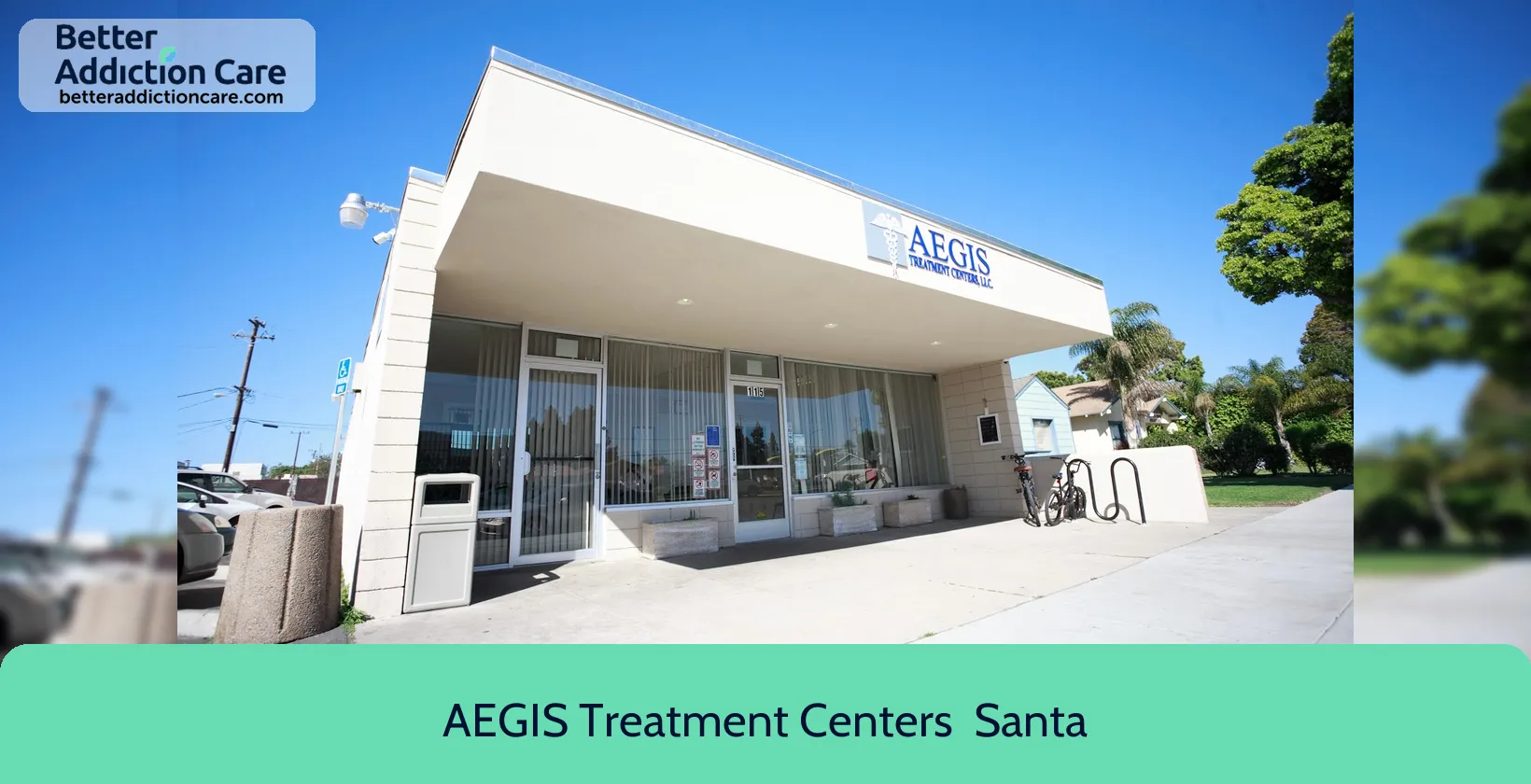Good Samaritan Shelter - Recovery Point

Overview
Good Samaritan Shelter - Recovery Point is an substance abuse treatment center that provides outpatient detoxification, for men and women from 18+ years of age. As part of their special programs, Good Samaritan Shelter - Recovery Point treats clients who have experienced trauma. To help patients achieve sobriety, Good Samaritan Shelter - Recovery Point provides intake assessments. Afterward, patients receive group counseling, individual psychotherapy, and cognitive behavioral therapy during treatment. Good Samaritan Shelter - Recovery Point is located in Santa Maria, California, providing treatment for people in Santa Barbara County, accepting medicaid and cash or self-payment.
Good Samaritan Shelter - Recovery Point at a Glance
Payment Options
- Medicaid
- Cash or self-payment
Assessments
- Comprehensive mental health assessment
- Comprehensive substance use assessment
Age Groups
- Adults
- Young adults
Operation
- Private for-profit organization
Highlights About Good Samaritan Shelter - Recovery Point
6.59/10
With an overall rating of 6.59/10, this facility has following balanced range of services. Alcohol Rehabilitation: 8.00/10, Drug Rehab and Detox: 6.00/10, Insurance and Payments: 6.00/10, Treatment Options: 6.36/10.-
Alcohol Rehabilitation 8.00
-
Treatment Options 6.36
-
Drug Rehab and Detox 6.00
-
Insurance and Payments 6.00
Treatment At Good Samaritan Shelter - Recovery Point
Treatment Conditions
- Mental health treatment
- Alcoholism
- Opioid Addiction
- Substance use treatment
- Co-occurring Disorders
Care Levels
- Detoxification
- Aftercare
- Outpatient
Treatment Modalities
- Group counseling
- Individual psychotherapy
- Cognitive Behavioral Therapy
- Trauma-related counseling
Ancillary Services
Languages
- Spanish
Special Programs
- Clients who have experienced trauma

Additional Locations
Get Help Now
Common Questions About Good Samaritan Shelter - Recovery Point
Contact Information
Other Facilities in Santa Maria

6.62

6.56

6.81
DISCLAIMER: The facility name, logo and brand are the property and registered trademarks of AEGIS Treatment Centers - Santa Maria, and are being used for identification and informational purposes only. Use of these names, logos and brands shall not imply endorsement. BetterAddictionCare.com is not affiliated with or sponsored by AEGIS Treatment Centers - Santa Maria.

